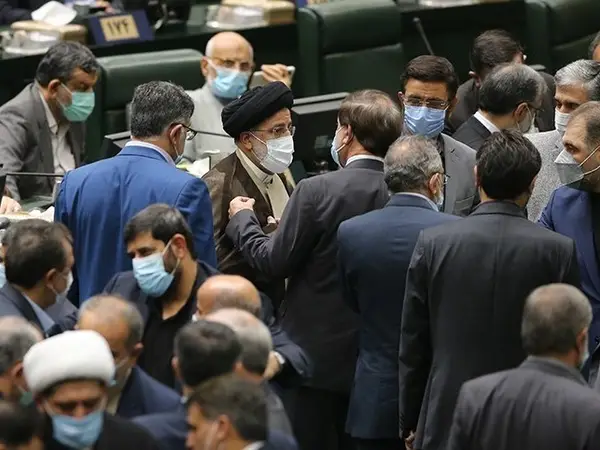Politicians and commentators in Iran express doubt if the upcoming nuclear talks can succeed, and some voice anxiety about the worsening economic crisis.
Ezzatollah Yousefian Molla, a hardline conservative lawmaker at the Iranian parliament (Majles), said on November 15 that there is no hope in the successful continuation of the nuclear talks.
Yousefian called on Iran's President Ebrahim Raisi to be honest with the people and tell them that he does not believe in negotiations. Meanwhile, like many other conservative lawmakers and reformist figures in Iran, he charged that Raisi and the parliament have no plan whatsoever for running the affairs of the state.
Yousefian further said that Raisi should tell the people that the country's economic situation might get even worse because “we do not want to negotiate with the West.”
"They keep telling we want to negotiate, but in 2 to 3 months from now. However, they have been saying this for 3 to 4 months now," Yousefian said. "They should tell the people honestly about their plan for negotiations. They should tell them how far the government is ready to compromise and give concessions," he added.
Iran’s economic crisis deepens by every passing day and some politicians feel they must be on the record for having warned the government.
Yousefian went on to cast doubt on the commitment of Iran’s negotiators to the concept of an agreement with the West. He argued that members of president Raisi’s foreign policy team have been telling the people for a long time that they do not believe in negotiations. “They have said the JCPOA should be laid to rest.”
Yousefian charged that the current negotiating team does not even clearly know whether they want to talk about the JCPOA or they would go further and address other issues. "Even the cabinet ministers do not know that. When they came to the Majles they even did not know each other," he said.
Meanwhile, a prominent hardline lawmaker called on Europe to stand by its commitments under the JCPOA. Mohsen Zanganeh the chairman of the Second Step of the Revolution fraction in the Majles said Europe should not wait for Iran to return to its commitments first. He said the agreement now works the other way around: First others should return to their commitments under the nuclear deal and then Iran will take reciprocal action. Zanganeh further called on Iran's negotiators to stand firm on their positions.
In another development, foreign policy analyst Amir Ali Abolfath told reporters in Tehran that "like former presidents Hassan Rouhani, Mahmoud Ahmadinejad and Mohammad Khatami, President Ebrahim Raisi also wishes to solve Iran's problems by negotiating with the West, although there is no bright prospect for the upcoming negotiations."
To reflect the apparent anxiety within the political elite, a well-known conservative professor of economics in Tehran University and a politician, Mohammad Khoshchehreh, said in an interview on Tuesday that Raisi’s government does not have the luxury of failure and will not get a second chance to solve Iran’s economic crisis. He warned that without a clear economic plan for success, not only the government will fail but the Islamic Republic might face danger.
